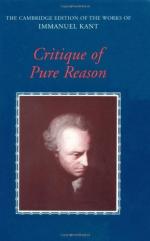|
This section contains 2,313 words (approx. 8 pages at 300 words per page) |

|
Immanuel Kant (1724–1804) was born in Köningsberg, East Prussia (now Kaliningrad, Russia), on April 22 and died there on February 12, having lived such an uneventful life that one early commentator questioned whether he had one. Yet his critical philosophy constituted a watershed in Western intellectual history. For science, technology, and ethics the significance of the Kantian watershed lies in the analysis of human experience as constructive and the argument that reason has insight only into that which it produces according to its own plan. With this argument Kant developed a new critical interpretation of scientific knowledge and of ethical reason that presents both as exhibiting constructive, not to say technological, dimensions.
Prior to Kant, modern philosophy was characterized by a contest between rationalism and empiricism. Rationalists such as René Descartes (1596–1650) and Gottfried Wilhelm Leibniz (1646–1716) considered reason to be the origin of all true knowledge, sensation merely a...
|
This section contains 2,313 words (approx. 8 pages at 300 words per page) |

|


